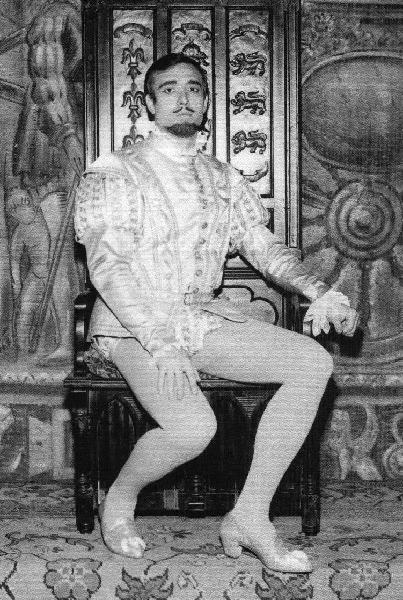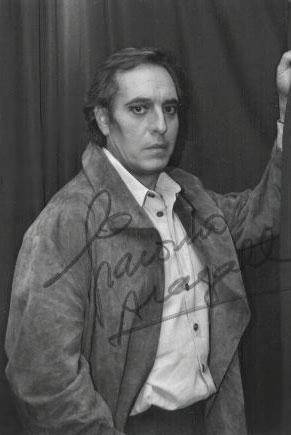Giacomo Aragall
I wish to thank Daniele Godor for the picture.
I wish to thank Thomas Silverbörg for the picture.
I would like to thank Thomas Silverbörg for the recordings.
Aragall was a great favorite with the ladies, not only as a singer; he was definitely a star... and yet he was a deeply unhappy
person. He suffered terribly from depression, to the extent of sometimes being unable to leave the house for months on end.
Although his voice was certainly exceptional (and his early recordings beautiful, like the ones above), I've never been crazy
about his technique, which led to early problems with the top
register, and later to quite excessive pushing. But the really remarkable thing about Aragall was his personality: a
bright, modest and incredibly likeable man, he spoke about both his psychological and vocal problems with a frankness unheard of
from any other singer (let alone a world star). He was absolutely forthright about not having a high C anymore and hence needing
to transpose where a C would be required, and he told about it in a refreshingly nice way, saying that he was glad to
have had a high C for many years, and that he accepted that the time was over now. In the same style, he would also talk about
his depression. He was, quite surprisingly for a clear-timbred tenor, a really heavy smoker, unable to bear up without a
cigarette for more than about one hour. He was also a good actor, which helped greatly when, in his later years, the voice was
in less than splendid condition.
Lucia di Lammermoor (Arturo) – Barcelona, January 1962 Pagliacci (Beppe) – Barcelona, 1962 Jérusalem (Gaston) – Venezia, September 1963 L'amico Fritz – Milano, December 1963 Cardillac – Milano, January 1964 La bohème – Milano, April 1964 Lucia di Lammermoor (Edgardo) – Budapest, October 1964 Madama Butterfly – Palermo, January 1965 La traviata – Modena, February 1965 Le pescatrici (by Haydn) – Amsterdam, June 1965 Rigoletto – Budapest, May 1965 Lucrezia Borgia – Napoli, January 1966 I Capuleti e i Montecchi (Romeo) – Milano, March 1966 La favorite – Barcelona, November 1966 Manon – Wien, November 1966 Werther – Catania, March 1970 Caterina Cornaro – Napoli, May 1972 Faust – Barcelona, December 1973 Tosca – Budapest, January 1974 Esclarmonde – San Francisco, October 1974 Don Carlo (4 acts) – Barcelona, December 1975 Adriana Lecouvreur – Zaragoza, May 1976 Un ballo in maschera – Barcelona, January 1978 Simon Boccanegra – Chicago, October 1990 Don Carlo (5 acts) – Berlin, September 1992 La vida breve – Madrid, October 1997
David Sugden: Jaume Aragall en escena, Lleida 2000 |

